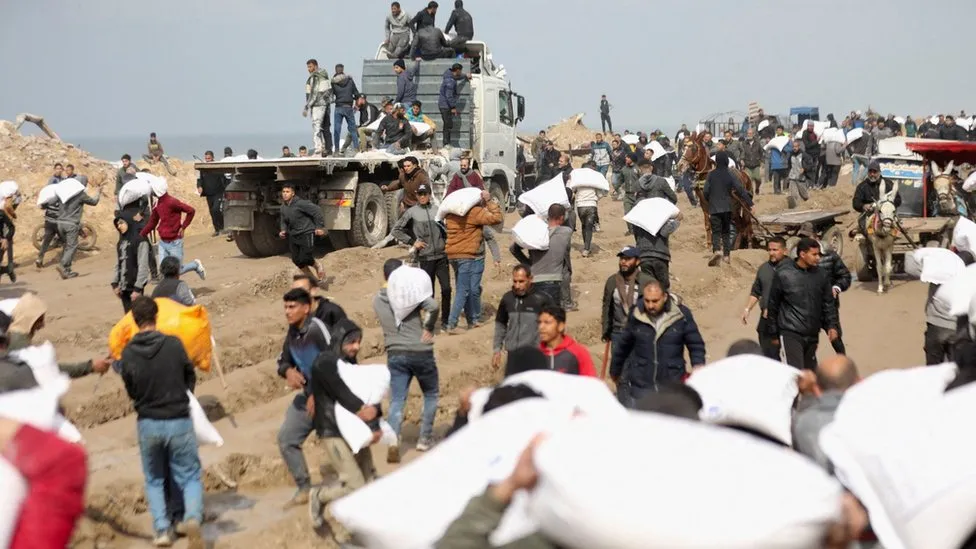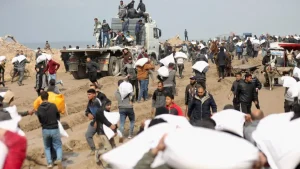Controversy Over Gaza Food Airdrops
2 min read
Why Food Airdrops into Gaza are Controversial
Food airdrops into Gaza have been a topic of controversy for many years. The Gaza Strip, a small Palestinian territory located on the eastern coast of the Mediterranean Sea, has been under a blockade by Israel since 2007. This blockade has severely restricted the flow of goods, including food, into Gaza, leading to a humanitarian crisis in the region.
As a result of the blockade, many humanitarian organizations have resorted to airdropping food supplies into Gaza to help alleviate the suffering of the people living there. While these airdrops are meant to provide much-needed relief to the population, they have also been the subject of criticism and controversy.
One of the main reasons why food airdrops into Gaza are controversial is the risk involved in the process. Airdropping supplies into a conflict zone is a dangerous operation that can put both the pilots and the people on the ground at risk. In addition, there have been instances where the food packages have been damaged or stolen before reaching their intended recipients.
Another issue that raises concern is the politicization of food aid in Gaza. Some argue that airdrops are being used as a means of exerting political pressure on the Palestinian authorities or as a tool for gaining favor with certain factions within the region. This kind of manipulation of humanitarian aid undermines the principles of neutrality and impartiality that should guide humanitarian efforts.
Despite the controversy surrounding food airdrops, it is clear that the people of Gaza are in desperate need of assistance. Finding a sustainable solution to the humanitarian crisis in the region will require the cooperation of all parties involved and a commitment to upholding the rights and dignity of the people living in Gaza.
In conclusion, while food airdrops into Gaza may be a contentious issue, the focus should remain on addressing the root causes of the humanitarian crisis and finding long-term solutions that respect the rights and dignity of the people affected.






